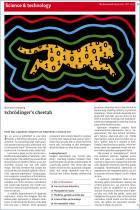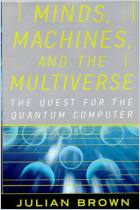Quantum computing might be the newest buzzword, but it also might represent the chief disruptive technology through 2040. Forward-looking leaders in biopharma R&D will appreciate Boston Consulting Group’s white paper outlining quantum computing’s potential uses and impacts in drug development. Matt Langione, Jean-François Bobier, Chris Meier, Sebastian Hasenfuss and Ulrik Schulze outline the technology’s potential and urge biopharma leaders to begin preparing now.
Quantum computing could revolutionize pharmaceutical R&D in coming decades.
Pharmaceutical companies already rely on computational tools in R&D, including in silico modeling and simulations. But this work requires massive computing power, and for molecules of any complexity, the computational demands place models out of reach. Quantum computing uses quantum bits known as “qubits” that can hold nonbinary values, unlike the zero-or-one bits of classical computing. Qubits can also become entangled, meaning that they act as a group. The net result produces computing power that is orders of magnitude greater than classical computers. Quantum computers particularly excel in combinatorial optimization, differential equations, linear algebra and factorization – suggesting that quantum technologies can find significant uses in pharma R&D.
Quantum computing promises to enhance quality, speed and cost in the early stages of biopharma R&D.
Quantum computing could see major...
Matt Langione is a project leader, Jean-François Bobier is a partner and associate director, Christoph Meier is a principal, and Sebastian Hasenfuss is a consultant at the Boston Consulting Group. Ulrik Schulze, a managing director and senior partner at BCG, leads the firm’s global biopharmaceutical sector.





















Comment on this summary or Démarrer une discussion